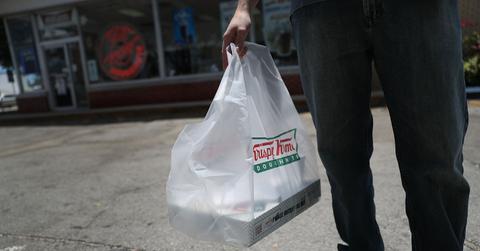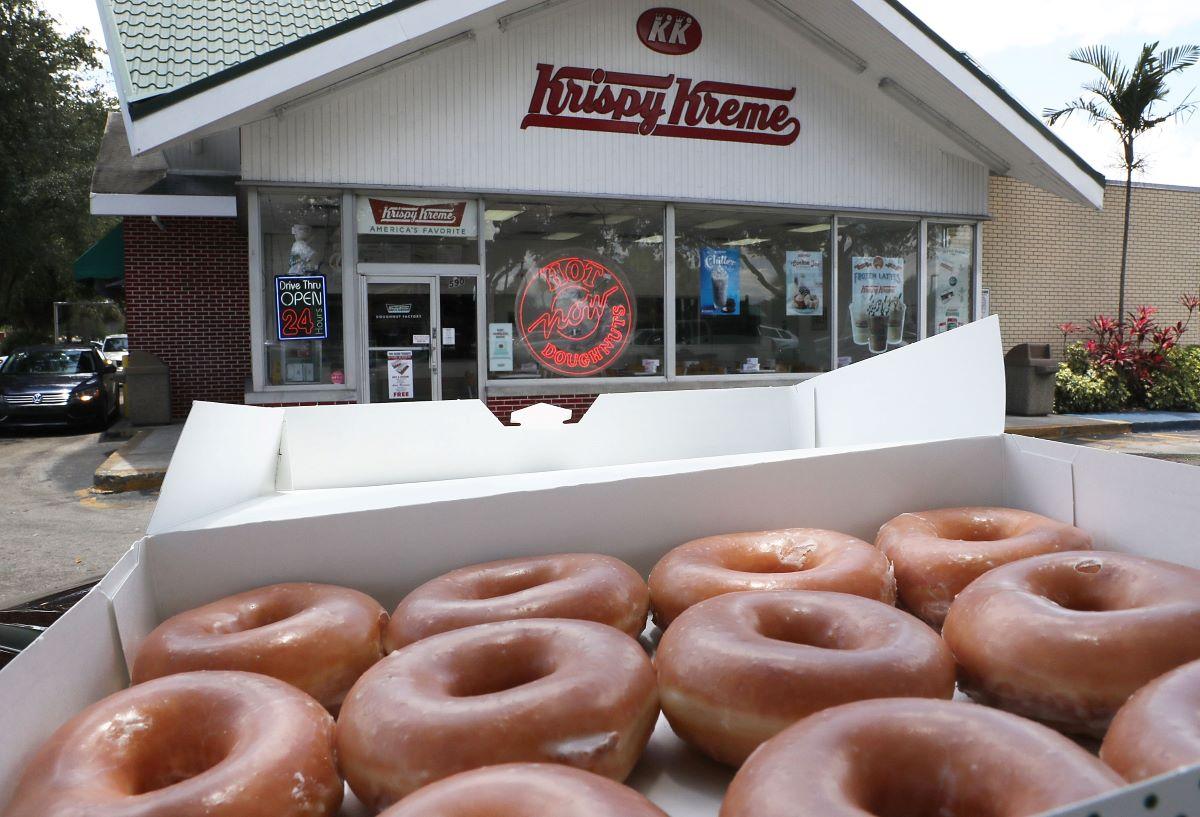Krispy Kreme Accounting Scandal Explained, DNUT to Go Public Again
Krispy Kreme is going public—again. An accounting scandal contributed to the company's near-demise just a few years after the first IPO.
June 2 2021, Published 12:00 p.m. ET
The American motif that surrounds Krispy Kreme is strong, but just a few years ago, it wasn't strong enough to keep the donut brand from nearly falling apart. An accounting scandal that came to light shortly after the first IPO in the early 2000s contributed to the downfall.
With Krispy Kreme gearing up for a new IPO, this time under the ticker "DNUT," what's different this time around?
Krispy Kreme's latest IPO differs from the first
Krispy Kreme changed its ticker from "KKD" to "DNUT," which is a slightly trendier take. The company is also switching from the NYSE to the Nasdaq. The executive board has shifted given the company's accounting scandal history.
In the same breath, executive compensation is front and center on the S-1 registration statement, even ahead of the company's 17 percent sales growth YoY.
What investors should know about the Krispy Kreme accounting scandal
The Krispy Kreme accounting scandal is a prime example of a public company using shareholder funds to propel an increasingly dramatized bottom line. Former CEO Scott A. Livengood started altering accounting reports in the 1990s and continued the practice into the new millennia, even after the company went public for the first time in 2000.
While they weren't accused of outright fraud, Livengood and his cohorts were independently profiting off of the company's accounting. Once the company went public, they manipulated the EPS by setting target prices with analysts and beating them by a cent in the earnings report. This leads to increased interest in the stock and was a key reason why Krispy Kreme stock (formerly "KKD") ballooned early on. Executives received monetary bonuses for a successful attempt.
Also, the SEC requires certain documentation to remain a public company. Krispy Kreme's filings hid the fact that Livengood exceeded his personal flight budget by $320,000 in one year, among other misdeeds.
The consensus on the new Krispy Kreme IPO is mixed
In the past, Krispy Kreme oozed desperation for Wall Street approval. Livengood was officially dismissed from the company in 2005. Michael J. Tattersfield came on board as CEO in 2017, a year after the company went private.
JAB Holding Company bought Krispy Kreme out in 2016 for $1.4 billion. Meanwhile, Krispy Kreme reacquired half a billion dollars worth of franchise locations to garner greater control over its brand. This rebuilding is impressive given the harsh image Krispy Kreme drew for shareholders and franchise owners in years past.
JAB has already taken the JDE Peets coffee shop brand public and expects to do the same with Panera shortly after the Krispy Kreme deal debuts.
Ultimately, the Krispy Kreme accounting scandal has set a precedent that the company will have to overcome. Like many companies that strive for a second IPO (see WeWork for a recent example), this has the potential to be a rebirth more than just a republicizing of the same entity. It's up to the corporation to convince shareholders of that heading into the IPO.


